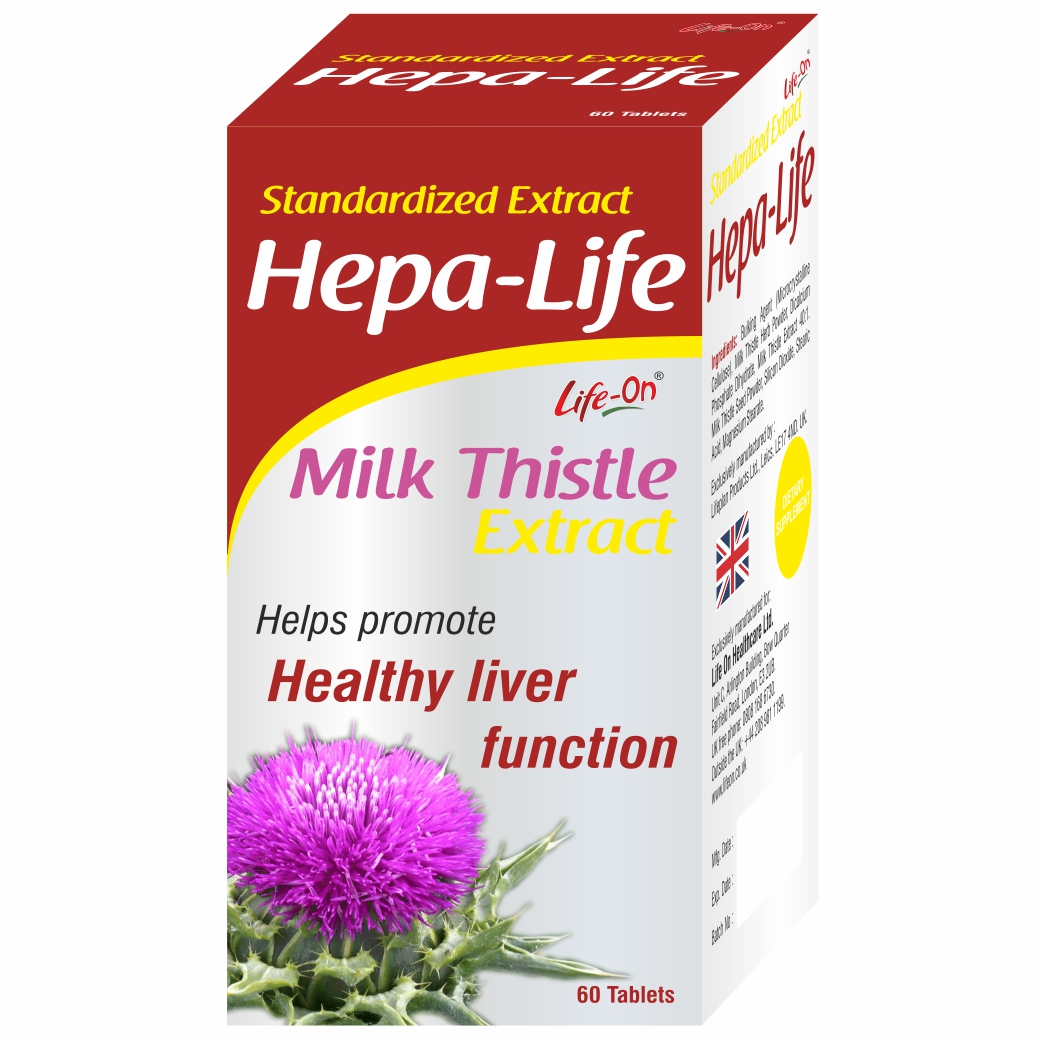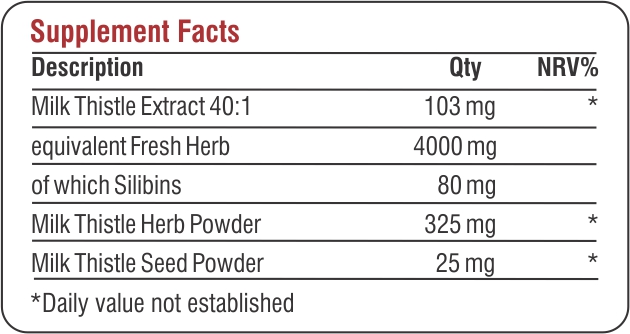

Product information
The liver is a vital organ of vertebrates and some other animals. In humans it is located in the upper right quadrant of the abdomen, below the diaphragm. The liver has a wide range of functions, including detoxification of various metabolites, protein synthesis and the production of bio-chemicals necessary for digestion.
Liver is a gland and it plays a major role in metabolism with numerous functions in the human body, including regulation of glycogen storage, decomposition of red blood cells, plasma protein synthesis, hormone production and detoxification. It is an accessory digestive gland and produces bile, an alkaline compound which aids in digestion via the emulsification of lipids(1).
The liver's highly specialised tissue consisting of mostly hepatocytes regulates a wide variety of high-volume biochemical reactions, including the synthesis and breakdown of small and complex molecules, many of which are necessary for normal vital functions (2).
Life On Hepa-Life has a unique substance called as Milk Thistle Extract (Silybum Marianum). It has been used for 2,000 years as an herbal remedy for a variety of ailments, particularly liver, kidney and gall bladder problems. Milk thistle has an active ingredient known as silymarin, one that protects the liver. Silymarin is chemically extracted from the seeds. It is actually a group of flavonoids (silibinin, silidianin and silicristin), which helps in repairing liver cells damaged by alcohol and other toxic substances. Silymarin also protects new liver cells from being destroyed by these same toxins. It reduces inflammation so it is often suggested for people with liver inflammation or hepatitis and it is a strong antioxidant and also has anti-inflammatory properties (3).
Silymarin's hepatoprotective effects are accomplished via several mechanisms including antioxidation, inhibition of lipid peroxidation, enhanced liver detoxification via inhibition of Phase I detoxification and enhanced glucuronidation and also protection of glutathione depletion. Studies have also shown silymarin exhibits several anti-inflammatory effects, including inhibition of leukotriene and prostaglandin synthesis, Kupffer cell inhibition, mast cell stabilisation and inhibition of neutrophil migration. In addition, silymarin has been shown to increase hepatocyte protein synthesis, thereby promoting hepatic tissue regeneration. Animal studies have also demonstrated silybin reduces the conversion of hepatic stellate cells into myofibroblasts, slowing or even reversing fibrosis. Clinical studies conducted also demonstrated silymarin to have immunomodulatory effects on the diseased liver (4).
Milk thistle helps in treatment of Liver disease from alcohol; It is suggested as a treatment for alcoholic hepatitis and alcoholic cirrhosis. Studies show milk thistle improves liver function and increases survival in people with cirrhosis or chronic hepatitis (3).
Milk thistle is widely used in the treatment of viral hepatitis (particularly hepatitis C). Some studies found improvements in liver function; milk thistle significantly reduces the viral load of hepatitis C (3).
References
1.Liver, en.wikipedia.org/wiki/Liver.
2.Human Biology and Health. Englewood Cliffs, New Jersey, USA:Prentice Hall. ISBN 0-13-981176-1. OCLC 32308337.
3.Milk thistle, umm.edu/health/medical/altmed/herb/milk-thistle.
